As the use of online communication has increased for so many of us, here are some email safety tips/reminders in visual form.
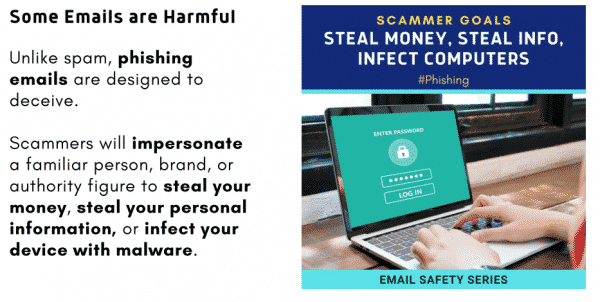
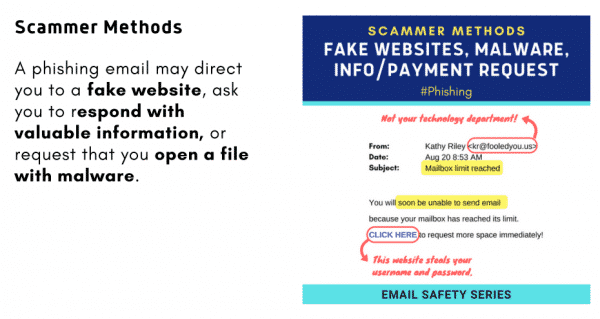
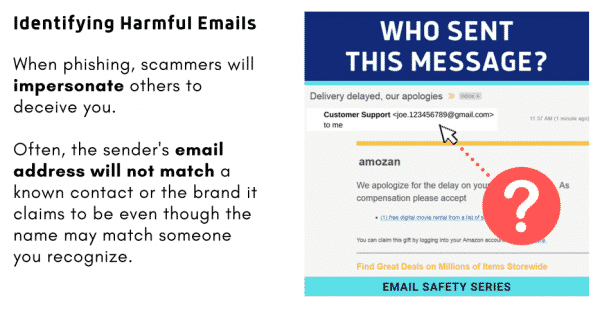
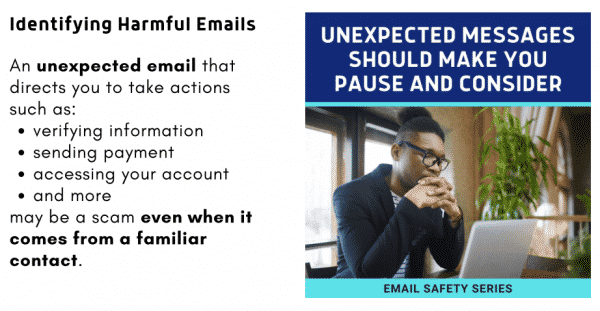
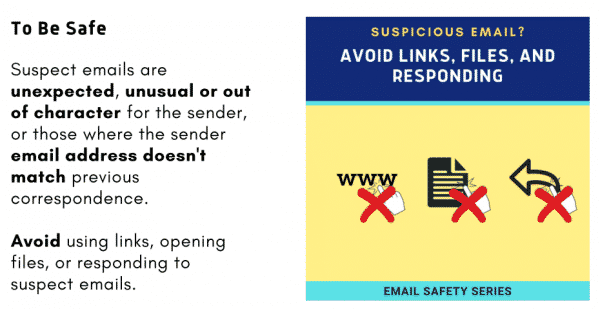
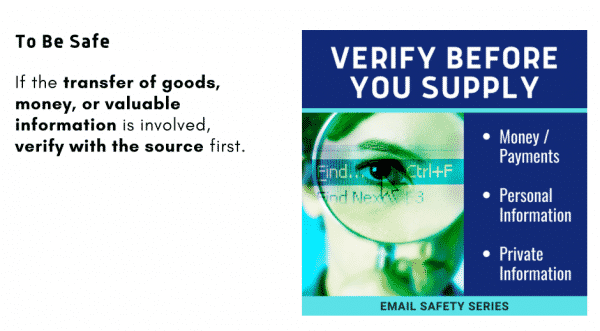
The Michigan Association for Computer Users in Learning (MACUL) has composed and shared useful guidelines around supportive considerations in a successful transition to online learning. Please browse to https://macul.org/online-learning-guidelines/ to check them out.
The Michigan Dept of Ed’s (MDE) Learning at a DISTANCE Guidance is billed as [a] largely teacher-written effort to help address the immediate needs of staff who must address the immediate needs of children – at a distance – during a pandemic.
If you have a district laptop, at some point before the school year ends, you may see a blue alert window declaring Your Windows license will expire soon; You need to activate Windows in settings. There is no need to panic.

To reset your license for another 180 days of use, when convenient within two weeks of first seeing that warning, head to any district building with your laptop. You don’t need to actually enter the building, you just need to be close enough to have the laptop connect to the district Wi-Fi. It’s even possible at some of our locations to remain in your car and still be close enough to get a signal. While remaining connected to the district Wi-Fi (either PCCSK12- Secure or PCCSK12-Staff), completely restart the laptop, then log into it and make sure it completes the log in process. Surf somewhere to confirm that you remained connected. Doing this should suffice to reset the license counter for months and you’re good to leave, mission accomplished.
If you still cannot get the alert to go away after doing the above, please submit a service ticket and our department can assist you with other steps to take.
Available soon, it will be possible to create and use multiple signatures in Gmail as well as fix images to a certain location on a page in Google Docs.
For more on creating and using multiple signatures, visit here (and check out what it looks like in the gif below).

For more on fixing images to a certain location on a page in Google Docs, visit here (and check out what it looks like below).
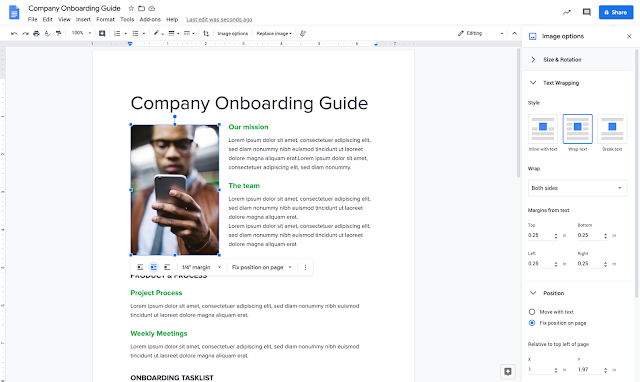
Springtime is finally here! For those interested, it’s time to enroll in a free REMC Virtual Course and earn 10 free SCECHs. To see a description of the courses offered and to register, visit https://www.remc.org/Core/News/Article/1337.
April 2020 Course Information
April courses begin on Monday, April 6. The deadline for registration is Friday, April 3.
We have about a thousand classrooms that have speakers installed in their ceilings and our department still occasionally finds it valuable to reiterate some points about them and promote system use in general.
First, both of the soundfield amplification systems deployed (TeachLogic at the elementary and Lightspeed at the secondary) are meant to improve the signal-to-noise ratio and spatially amplify our teachers’ voices (or teacher determined sound sources) above the ambient noise in our classrooms through speaker distribution. However, the system is designed not so a teacher should expect they will be able to hear themselves be louder, but rather that their voice should be heard at the same level further away from themselves. Our amplification systems can help facilitate an even spread of sound (that a teacher has chosen, via a source such as a microphone or laptop) around a classroom. If you’re hearing screeching or other feedback, try dialing back your volume control — it is probably set too high.
Second, please note that classroom amplification can benefit ALL children, not just those with severe-profound hearing losses. Other groups shown to benefit from amplification include: children with minimal or unilateral hearing loss, children with transient hearing loss due to ear infections, children with ADD/ADHD, English language learners, and students in the general population! Research studies over the last forty years uniformly have found academic (enhanced student speech perception, improved attention and comprehension, etc) and social (calmer environments, reduced teacher vocal abuse, etc) benefits from consistent and persistent system use.
Third, our soundfields are only useful when they are being used! So please have our systems on and wear/use your mics.
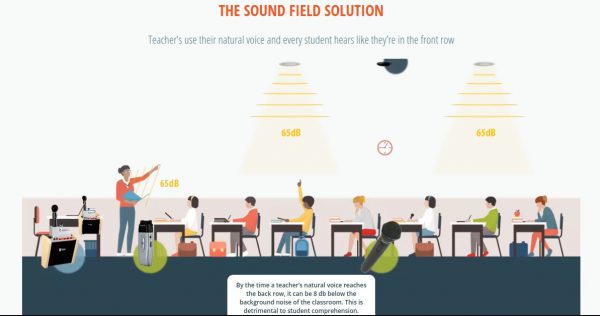
|
|
|
From cyberbullying to social networking, each year Safer Internet Day (held sometime in February) aims to raise awareness of emerging online issues and chooses a topic reflecting current concerns (this year it’s online identity). Safer Internet Day aims to not only create a safer internet but also a better internet, where everyone is empowered to use technology responsibly, respectfully, critically and creatively.
Safer Internet Day (SID) 2020 took place on Tuesday, 11 February 2020 with a theme of “Together for a better internet”.
Two sites for some related resources to check out are Richard Byrne’s February posting entitled Fifteen Digital Resources for K-12 and the resource search engine with language filters on SaferInternetDay.org.
Middle school and high school teachers who use Illuminate DnA can now push Illuminate DnA assessment results to their MISTAR Q Gradebooks and can now post Illuminate DnA assessments into their Google Classrooms (and receive scores back after students submit their work – and if they do the aforementioned push, can easily transfer those as grades into their gradebooks). The steps to do each are outlined below:
Please note: The assignment you will be assessing must be created in Q before you are able to push results to it from DnA.

Assessments must have standards aligned to all questions and the correct performance band applied to the assessment in order to import successfully into your Q Gradebook.


The following selections are conditional, working together based on the selections that have been made:

Your Illuminate Assessment scores should be available in your Q Gradebook.
To push assessment results to multiple Gradebooks, repeat the process for each individual Gradebook.


I have a ton of Classrooms on my list! At this time, both active and inactive Google Classrooms tied to your account will show. You may want to consider a naming convention or changing the title of inactive Google Classrooms in your account.
This instantly posts the assessment into the Google Classroom(s) previously selected. Assessments set to Test in Portal or Test with Quick Code will not be available for students in their Google Classroom(s).
The assessment has been posted to all students in your roster and will be available for students to take online through their Google Classroom accounts, based on the start and end dates previously entered.
Check it out! You still have access to Assessment Panel and live proctoring tools!